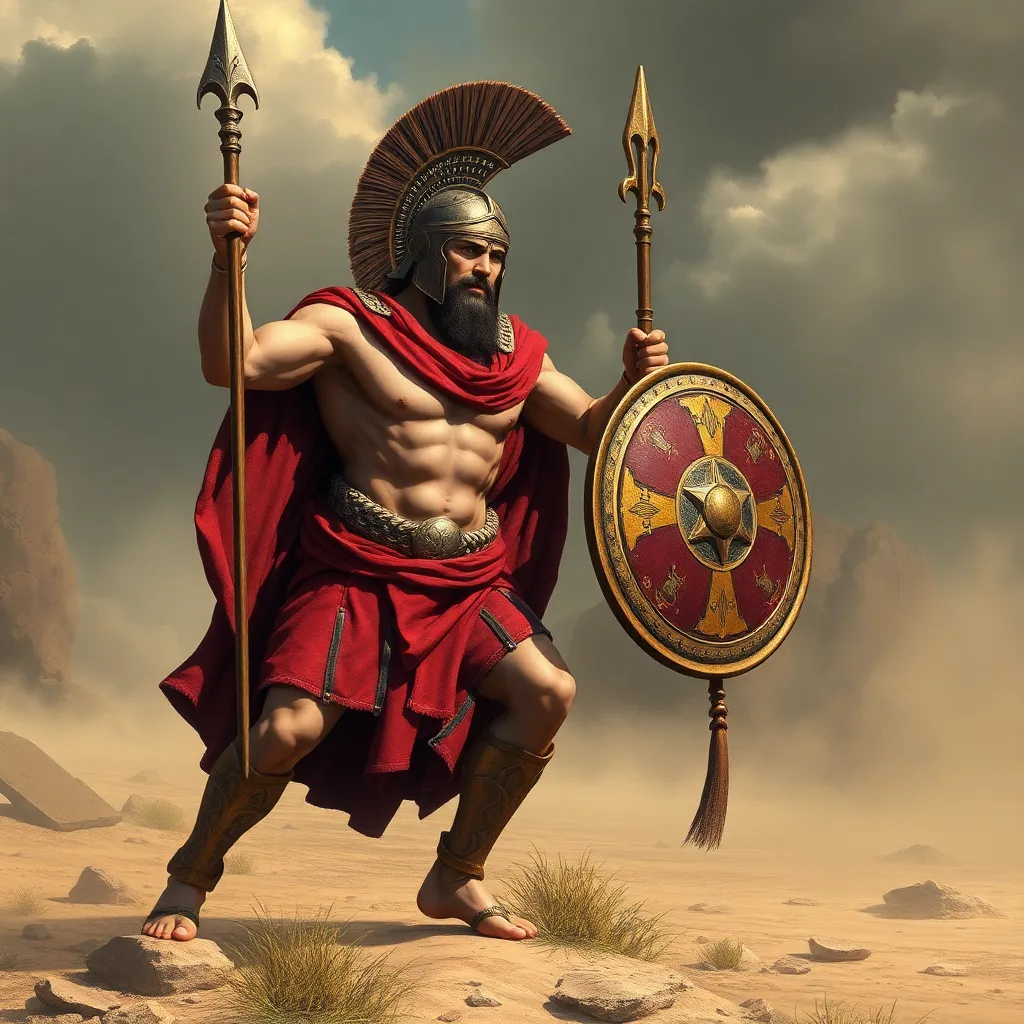Ares and the Concept of Honor in Greek Warfare
I. Introduction
Ares, the Greek god of war, embodies the raw and tumultuous aspects of battle. Unlike other deities associated with warfare, Ares represents the chaotic and violent side of conflict, often characterized by his aggressive nature and thirst for bloodshed. In ancient Greek society, the concept of honor was paramount, especially in the context of warfare, where personal valor and reputation could determine a warrior’s legacy.
This article explores the intricate relationship between Ares and the concept of honor in Greek warfare, examining how Ares symbolizes martial prowess while also highlighting the complexities of honor in battle.
II. Ares in Greek Mythology
Ares is often depicted as a powerful and formidable figure, embodying the brutality of war. His attributes include:
- Physical strength and aggression
- Weapons such as a spear and shield
- His chariot pulled by fierce animals
In various myths, Ares often finds himself at odds with other gods, reflecting his contentious nature. For instance, in the Iliad, he is portrayed as a chaotic force on the battlefield, clashing with Athena, the goddess of wisdom and strategic warfare. While Ares revels in the chaos of combat, Athena represents the calculated and honorable aspects of war.
III. The Concept of Honor in Ancient Greece
Honor in ancient Greece, known as “timē,” was a multifaceted concept encompassing personal reputation, social standing, and moral integrity. It was not merely a personal attribute but a societal expectation that influenced every aspect of life, especially in warfare.
Honor played a crucial role in Greek society, manifesting in various ways:
- Warriors sought to achieve glory through acts of bravery.
- Public recognition and accolades were vital for a warrior’s status.
- Honor dictated personal and familial duties, often leading to feuds and quests for vengeance.
For Greek warriors, the pursuit of honor was a powerful motivator, driving them to engage in battles and to uphold their reputation on the battlefield.
IV. Ares and the Pursuit of Honor
Ares stands as a symbol of martial prowess and bravery, embodying the ideals of honor in battle. His very existence as a war deity inspires warriors to pursue glory through might and valor. However, Ares also represents a duality in the concept of honor:
- He exemplifies the honor gained through victory and conquest.
- Conversely, he also embodies chaos and the potential loss of honor through reckless aggression.
This duality highlights the fine line between honorable warfare and the descent into barbarism. Ares can inspire bravery, but his chaotic nature also serves as a warning about the potential consequences of unchecked aggression.
V. Honor in Greek Military Culture
In Greek military culture, honor was integral to the formation and operation of military units. Key aspects of honor included:
- The formation of military units: Soldiers often fought alongside comrades from their city-states, driven by a shared sense of honor.
- Codes of conduct: Greek soldiers adhered to a code of honor, emphasizing bravery, loyalty, and respect for fellow warriors.
- Examples of honor-driven actions: Famous battles, such as the Battle of Thermopylae, showcased warriors sacrificing themselves for their comrades and city-state.
These tenets shaped not only the conduct of individual warriors but also the collective reputation of their units.
VI. The Influence of Ares on Greek Warfare
Ares’ influence permeated Greek art and literature, often depicted as a central figure in war-related narratives. His attributes shaped military strategy and tactics, as his persona encouraged a more aggressive approach to warfare.
Moreover, Ares exemplifies the consequences of lost honor in warfare. The Greeks understood that failure in battle could lead to disgrace, not only for the individual warrior but also for their city-state. This understanding reinforced the importance of Ares’ presence in their military culture, as he served as both a source of inspiration and a reminder of the stakes involved in combat.
VII. Ares, Honor, and the Evolution of Warfare
Over time, the perception of honor in Greek warfare evolved significantly:
- The early emphasis on individual glory gradually transitioned to collective honor, especially during the rise of larger city-state coalitions.
- As warfare became more organized, the ideals of honor shifted, reflecting a growing understanding of strategy and tactics in battle.
Ares remained relevant throughout these changes, representing both the foundational aspects of honor and the more complex realities of warfare as it evolved through different historical periods.
VIII. Conclusion
In summary, Ares symbolizes the complexities of honor in Greek warfare, juxtaposing the ideals of bravery and martial prowess with the chaos of conflict. His influence permeates Greek mythology, art, and military culture, highlighting the importance of honor as a driving force for warriors.
The lasting legacy of Ares and the concept of honor continues to resonate in modern interpretations of warfare, reminding us of the intricate relationship between valor, reputation, and the consequences of battle. Understanding this dynamic is essential to comprehending the military culture of ancient Greece and its enduring impact on the concept of honor in warfare.




